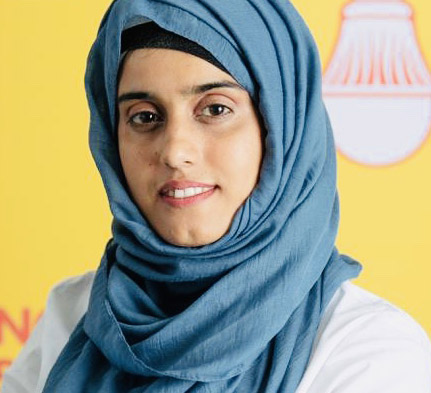GM LEP investment supports graphene infrastructure which made Manchester project possible
An intelligent soil alternative that can sense and respond to a plant’s nutritional needs is being developed by scientists using graphene, the 2D super material first isolated at the University of Manchester.
GelPonic could help address heightened global food security concerns following the coronavirus pandemic, drastically reducing the amount of energy and human interaction required to produce food using ‘vertical farming’ techniques.
While vertical farming aims to minimise water use and maximise productivity by growing crops hydroponically in small amounts of nutrient-rich water stacked in a climate-controlled building, high energy and labour costs mean it is not currently considered a sustainable long-term solution.
University of Manchester start up AEH Innovative Hydrogel Ltd has secured £1m of Government funding through Innovate UK for the two-year Graphene Engineering Innovation Centre project to develop a unique, virtually maintenance-free ‘vertical farming’ system.
By using minute electronic sensors to monitor a plant’s nutritional requirements, then automatically release nutrients to its root system, GelPonic has the potential to substantially reduce production costs and labour requirements.
GelPonic relies on a growth substrate – the surface or material from which an organism feeds – for indoor fruit-and-veg that improves performance in numerous ways. The hydrogel growth medium conserves water and filters out pathogens to protect plants from disease, while a graphene sensor allows remote monitoring, reducing labour costs.
Moreover, the production of the growth medium outputs significantly less CO2 compared to traditional solutions and can also be used in areas with drought conditions and infertile soil.
Led by Dr Beenish Siddique, AEH has been supported by the European Research Development Fund’s Bridging the Gap programme and was a 2019 prize-winner in the prestigious Eli Harari competition, run by the University.
Bridging the Gap was developed to proactively engage Greater Manchester-based SMEs and new ventures to allow them to overcome challenges, and explore and apply graphene and other advanced 2D materials in a wide range of applications and markets.
The extra £1m in funding announced by the UK Government is part of a broader £24m spend to assist UK farming through pioneering technology.
“One of the biggest hurdles in controlled environment agriculture is operational cost, which makes it a low-profit-margin business,” Dr Siddique explained. “The fact this system is almost maintenance-free could make a big difference to whether farms can be successful or not.
“We believe there is an opportunity here to change the future of farming not just here in the UK but around the world.
“Globally, around 70% of the fresh water available to humans is used for agriculture and 60% of that is wasted; agriculture also contributes around 20% of global greenhouse-gas emissions. Our system helps control that waste and those emissions, shortens germination times and could enable an increase of 25% in crop yields.”
GelPonic is among the latest innovations to emerge from the Graphene Engineering Innovation Centre in Manchester. The GEIC is part of a £100m+ investment in infrastructure to support the development of applications made possible by the isolation of graphene by scientists at the University of Manchester in 2004.
Graphene technology is already supporting research into new methods of water filtration, advances in healthcare, aerospace and automotive super light-weighting, and battery power.
Supported with £5m of funding from Greater Manchester Local Enterprise Partnership and Greater Manchester Combined Authority, the £60m GEIC specialises in the rapid development and scale up of graphene and other 2D materials applications.
The GEIC sits alongside the £61m National Graphene Institute and both are part of the vision to create a Graphene City in Manchester, with scientific research conducted in partnership with industry to deliver prototypes then production. The £235m Henry Royce Institute, which has its headquarters in Manchester, will further boost the city-region’s capabilities as the UK national institute for advanced materials research and innovation.
One of Dr Siddique’s colleagues at the GEIC is Commercialisation Director Ray Gibbs, whose role is to help to bring innovative ideas to fruition through launching start-up and early-stage companies such as AEH. He believes the current pandemic, in tandem with net-zero targets, has sharpened the Government’s focus on investment in innovation.
He said: “The COVID-19 pandemic has demonstrated the fragility of the UK supply chains, none more so than food supply. Indoor farming allows us to grow food in the UK that would normally come from another part of the world. That contributes to self-sustainability, reduces food miles and means we’re not so reliant on international markets for our food.”
AEH is developing its system alongside project partners and subcontractors including Crop Health & Protection (CHAP), Labman Automation, Grobotic Systems and Stockbridge Technology Centre (STC).
CHAP’s Innovation Network Lead Dr Harry Langford said: “There is a significant market demand for more sustainable hydroponic substrates. This project is an exciting opportunity to optimise and scale-up a novel hydrogel product and demonstrate this product directly to the end-user, within a highly innovative automated production system”.
Supported with £5m of funding from Greater Manchester Local Enterprise Partnership, the £60m Graphene Engineering Innovation Centre is home to GelPonic

